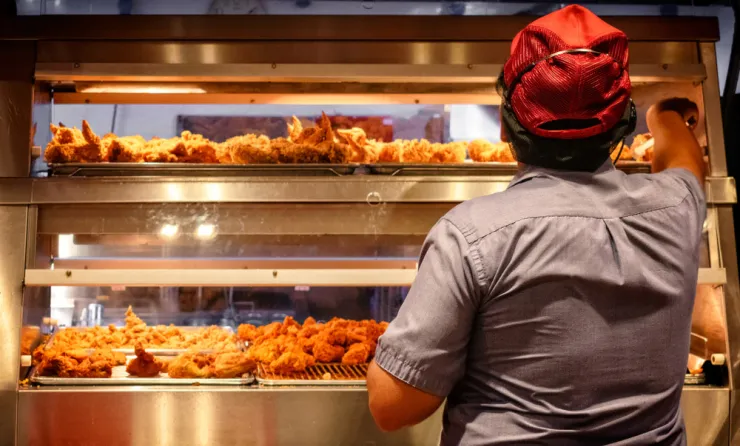
Starting a restaurant can be a challenging and potentially risky endeavour. A restaurant franchise offers a way to minimise those risks and increase your chances of success. By purchasing a franchise, you can leverage the proven business model and established brand of a successful restaurant chain.
However, before diving into a franchise opportunity, it is important to understand the ins and outs of the process.
In this blog post, we will explore the key factors to consider when deciding whether to invest in a restaurant franchise, including the costs, support provided by the franchisor and the level of autonomy you can expect as a franchisee.
Whether you are a first-time entrepreneur or an experienced restaurateur, this post will provide valuable insights into the world of restaurant franchising.
What is a restaurant franchise?
A restaurant franchise is a business model in which an individual, the franchisee, is granted the right to operate a restaurant using the trademark, products and business systems of an existing brand, the franchisor. In exchange for this right, the franchisee pays an initial fee and ongoing royalties to the franchisor.

The benefits of restaurant franchises
There are several benefits to starting a restaurant franchise. One of the main benefits is the ability to start a business with a proven concept and established brand. The franchisor has already done the research and development to create a successful restaurant, and the franchisee can use this knowledge and experience to start their own business.
Additionally, the franchisor provides ongoing support and training to the franchisee, which can be especially valuable for first-time business owners.
Another benefit of starting a restaurant franchise is the ability to access a larger customer base. Many franchisors have established relationships with suppliers and vendors, which can help the franchisee save money on food and other supplies. The franchisor may also have a marketing and advertising plan in place, which can help the franchisee attract new customers.
Drawbacks of restaurant franchises
It’s important to note that there are also some downsides to starting a restaurant franchise. One of the main downsides is the cost. In addition to the initial franchise fee, franchisees may also be required to pay ongoing royalties, which can be a significant expense.
And franchisees may be required to purchase supplies and equipment from the franchisor, which can also be expensive.
Another downside to starting a restaurant franchise is the lack of control. Franchisees are required to follow the franchisor's systems and procedures, which can limit the franchisee's ability to make changes to the restaurant. Additionally, franchisees may be required to purchase supplies and equipment from the franchisor, which can limit the franchisee's ability to negotiate prices.
What to think about when considering a franchise opportunity
When considering starting a restaurant franchise, it is important to carefully research the franchisor and the franchise opportunity. This includes looking at the franchisor's financials, experience in the industry and their track record of success.
Be sure to look carefully at the franchise agreement and understand the terms and conditions of the agreement. And find out what level of resources, ongoing support and training is being offered.
This includes looking at the franchisor's marketing and advertising plan, the franchisor's training program and support team.
Is restaurant franchising right for you?
Starting a restaurant franchise can be a great opportunity for individuals looking to start their own business. However, it is important to carefully research the franchisor and the franchise opportunity, and to understand the terms and conditions of the agreement.
It’s a good idea to enlist the help of a financial advisor or business consultant to help you make your decision.


